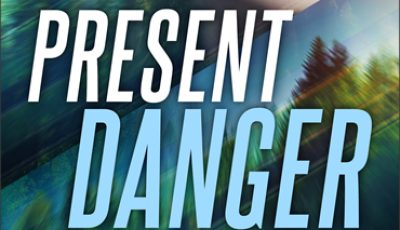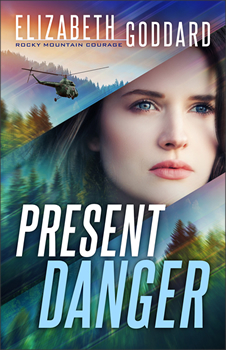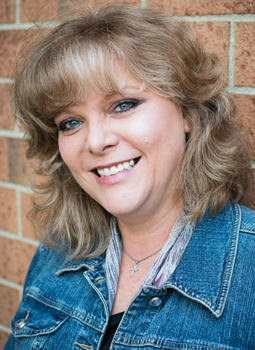

Present Danger by Elizabeth Goddard
Elizabeth Goddard’s latest release, PRESENT DANGER, starts out with a pilot stumbling away from a plane crash. Who is he? Why doesn’t he want to go to the police?
But before the reader gets answers to these questions, we’re introduced to Detective Jack Tanner, who finds a dead body in the Montana mountains while looking for a couple of missing children. The children are found, safe and sound, but Jack is now on the trail of a killer.
His investigation leads him to a criminal enterprise trafficking in archeological artifacts. It also teams him with US Forest Service Special Agent Terra Connors, his former flame.
PRESENT DANGER is a romantic thriller, but both the hero and the heroine are intelligent and capable and hold their own professionally. Goddard includes a lot of information about the illegal trafficking of artifacts, and does an exceptional job of weaving those facts into the story without bogging down the plot.
Goddard starts the suspense on the first page and keeps on building right until the end.
In this interview for The Big Thrill, Goddard shares insight into her inspiration for the novel, the research involved in crafting this thriller, and what readers can look forward to in the second installment of the series.
I appreciate the opportunity to read PRESENT DANGER—I read it in one sitting. The plot of the book revolves around trafficking in archaeological artifacts, which is a plotline you don’t see often. What made you choose to base the novel around this particular crime?
I knew that I wanted to showcase a USFS Special Agent. That’s an investigator with the US Forest Service, which is also not seen often in fiction. After connecting with a USFS SAC (special agent in charge) of the region, I learned what kind of crimes my agent would investigate. Since I’ve always been fascinated with everything archaeology, I decided now was the time to write a story with a trafficking premise. All I needed to add was a murder, and then I could bring in my county detective and former boyfriend so the real fun could begin.
In the last several years, the public has become more aware of the pillaging and theft of cultural artifacts, but it’s a crime that still happens largely in the shadows. What kind of research did you do for this book, and how did you conduct your research?
As mentioned above, I’ve been fascinated with artifacts for years and so I had already read quite a few books involving ancient archaeological artifacts, museums and trafficking, the recent push to return artifacts to countries of origins, and so forth. I watched documentaries as well. In addition, I employed a research assistant—there’s just so much information out there, and with a deadline, I didn’t want to follow the wrong trails. Believe me, I left a lot of information out of my book. But readers don’t necessarily want to know all the details writers learn during research. They want to know enough to add depth and credibility to the story. I hope I’ve done that!
PRESENT DANGER is a romantic suspense novel, as are several of your past books. This genre can be difficult for authors because there are multiple threads that have to be balanced. How do you go about balancing the mystery plot with the romance plot in your books?
I have the advantage of having written for Harlequin’s Love Inspired Suspense line for years, and writing for them taught me so much about the genre. They require half romance and half suspense, so I learned to go back and forth with the elements. After writing so many books, and of course, avidly reading in the genre, I’ve learned the “feel” and rhythm for how all the threads should be woven together. I can usually feel when something is off and I need to add an explosion or, on the other side of things, a moment for emotional reflection and a kiss. Thank you for bringing this up because you’re right, it’s a balancing act.
Your characters jump off the page, in part because they feel like real, fully fleshed-out people. How do you develop and write characters that are true to life?
I know a lot of writers create character charts to get to know their characters. I found that doesn’t work for me as well as just diving into the story and living life vicariously through them. I get to know them really well that way and develop them as I write. Of course, I start out knowing a few things. Like with Terra, I knew she was a USFS special agent and that she’d been hurt in the past by the hero, Jack Tanner. But I didn’t know much more than that when I began writing. That said, the hardest part of any novel for me is to simply start. Where and how do I open the story? And sometimes, even after I start, things change. I had written maybe 50 pages when I decided that I hated the opening scene. I didn’t think it was exciting enough. The image of a plane crash came to mind, so I went with that. But then I had a bigger issue—who was the pilot? Chance Carter was born, and I had no idea who he was until he revealed that to me as I wrote the story.
According to Goodreads you have over 50 published works. Wow! How do you ward off writer’s block and keep each novel fresh and relevant for your readers?
Writer’s block comes in many shapes and sizes, and I think the best way to avoid it is to have multiple deadlines. I simply can’t afford to have writer’s block. I change things up for myself, though, when I need a break. I take a walk. Do the dishes, and ideas will come to me. Watch a movie or read a book. That keeps the creative juices flowing and, I hope, fresh and relevant.
I read that you worked in the field of computer science and software sales prior to becoming a professional writer. Has that prior experience in an industry completely different from publishing influenced your work?
My previous experience provided me with a solid work ethic and a business and productivity mindset that works well for me as a novelist. In my job as an account executive, I also wrote marketing materials and proposals. See? That love of writing, no matter what form, was always there. Also, I traveled all over the US and Canada, and I’ve used my travels to create places and people for my stories.
What wisdom or advice would you share with aspiring writers?
If you’re serious about it, then write every day. The usual advice is to write, write, write and read, read, read. That’s your starting point. Learn the craft and make connections at workshops or conferences (in person or online) and set goals—“I’m going to send out three proposals this year.” Don’t just talk about wanting to be a writer. Start writing.
What are you working on next?
I’m working on multiple projects in different phases, but my big looming deadline is for the untitled Rocky Mountain Courage Book 3.
- LAST GIRL MISSING with K.L. Murphy - July 25, 2024
- CHILD OF DUST with Yigal Zur - July 25, 2024
- THE RAVENWOOD CONSPIRACY with Michael Siverling - July 19, 2024


